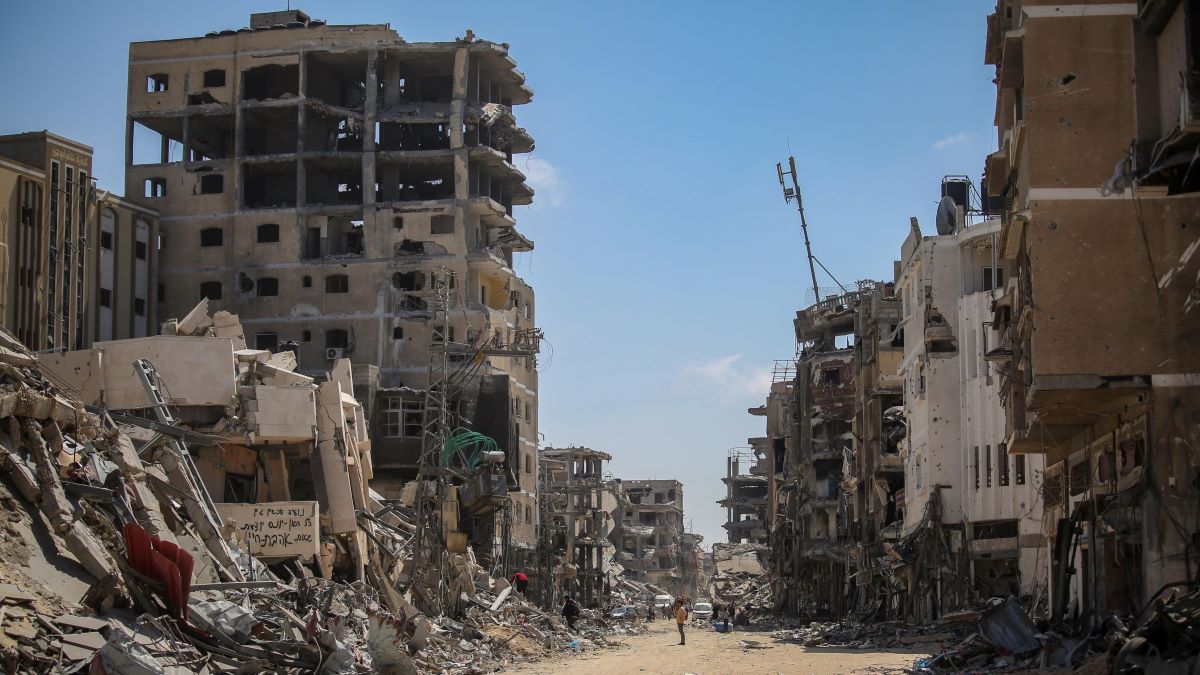The Middle East has been embroiled in a devastating conflict since October last year; a conflict that found a new frontline in university grounds and city streets.
The world was shaken on Oct. 7 when Hamas, the Islamist military group associated with the Gaza Strip, launched an assault on Israeli-occupied territories in western Levant. Israel immediately began a military offensive against Hamas, embarking on a ruinous campaign that has destroyed much of Gaza and left millions of Gazans displaced and under serious threat of starvation, disease, and death.
Israel’s bombing campaign has been one of the most destructive in history, killing more than 35,000 civilians, at least 50% of whom were women and children according to UN estimates. The war has sparked global outrage against Israel and its handling of the situation, with many protests across different cities calling for an immediate ceasefire to preserve civilian and innocent lives. Tensions between Israel and the Axis of Resistance — referring to the Iranian-led coalition of mostly Shiite Muslim estates opposing the United States and Israel’s rule — has also reached an all-time high, with Iran and Israel exchanging fire in direct attacks for the first time in history.
Other political movements in the region have also been swept into the tide of this war. The Lebanese Shia group Hezbollah and the Yemeni Houthis, as well as small military groups in Iraq, have engaged the IDF in small skirmishes across the board, while the attack on the Iranian consulate in Damascus resulted in the IRGC launching one of the biggest retaliatory drone and missile strikes in history.
The history behind the conflict
With the emergence of Zionism in the late 19th century, advocating for the creation of a Jewish homeland and state, Jews began migrating to the part of the Middle East called Palestine which was then under Ottoman rule. With the collapse of the Ottoman Empire following World War I, Britain took control of Palestine under the “Mandate for Palestine” and signed the 1917 Balfour Declaration, supporting the establishment of a Jewish state in the region.
Tensions rose over the next two decades between the Arab communities and the Jewish settlers, resulting in the 1936 Arab Revolt. The British Army suppressed the rebels, but sentiments for a free Palestine began to steadily increase. With the Second World War and the Holocaust fueling further support for the Jewish state, the United Nations passed a partition plan in 1947, dividing the land between the two communities. This directly led to the 1948 war, which saw the defeat of the Arab coalition and the establishment of the State of Israel. Hundreds of thousands of Palestinians fled or were expelled from their homes in the “Nakba,” and the control of the Gaza Strip was passed onto Egypt.
This was followed in 1967 by the infamous Six-Day War, also known as the Third Arab-Israeli War, during which Israel inflicted major casualties on the Arab coalition and took control of the West Bank as well as the Gaza Strip, thus beginning its military occupation of the region which has lasted to this day. Hamas, a military and political movement originally founded in 1987, took control of Gaza in 2006 and has since been clashing with the IDF across numerous skirmishes in 2008, 2012, 2014, 2021, and now in 2023-2024.
How will it end?
All attempts at peace talks by political parties across the world, and that includes the United Nations, have failed to result in a ceasefire, and the future of the conflict remains, as of yet, ambiguous and gloomy.
At the moment, the Rafah Offensive launched by the IDF, targeting the region where most of the displaced Gazans are currently residing, is causing global alarm. On May 24, the International Court of Justice ruled that the offensive must be immediately halted, lest it lead to an unprecedented human catastrophe. These developments have also led several countries in Europe, including Spain, Ireland, Norway, and Slovenia, to recognize the State of Palestine as a sovereign country.
The conflict between Palestine and Israel dates back many decades, though never had it reached such intensity across the long years when the two groups disputed over the land as it did in October. We can only pray that wiser minds, unruled by hatred and folly, will find a compromise and bring an end to this devastation sooner rather than later.

